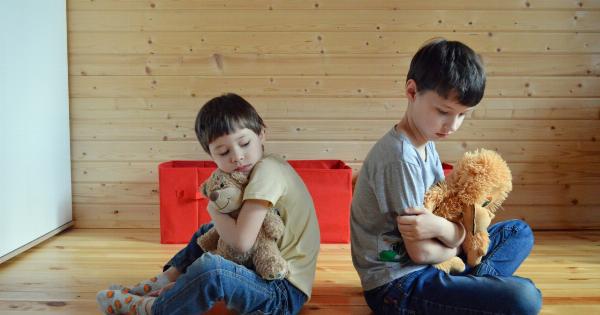Adoption is a way of giving a child a family and a better life.
But, does adoption have any effect on the child’s cognitive abilities? Adopted children have always been a topic of research, and scientists have tried to find out whether they have higher IQ scores than non-adopted children. In this article, we will discuss the findings of various studies and try to answer the question: Do adopted children have higher IQ scores?.
The Nature vs. Nurture Debate
The nature vs. nurture debate has been raging for years. It is a question of whether our genes or our environment plays a more significant role in shaping us.
The answer is not black and white, and both factors play a role in shaping an individual’s personality and cognitive abilities.
IQ is often seen as an inheritable trait, but that is not entirely true. While genetics can influence intelligence, the environment has a considerable effect as well.
A child’s environment includes everything they are exposed to, including the family they grow up in, the education they receive, and the life experiences they accumulate.
IQ and Adoption: What the Research Says
Several studies have examined the IQ scores of adopted children, and the results are mixed. Some studies have shown that adopted children have higher IQ scores than non-adopted children, while others have found no significant difference.
A study conducted by the University of Minnesota in 2008 found that adopted children had IQ scores that were 4.5 points higher than non-adopted children. The study examined 540 children, both adopted and non-adopted, between the ages of 6 and 18.
However, this study had some limitations. The sample size was relatively small, and the study was conducted in a specific region, which may not be representative of the entire population.
Another study conducted by the National Institutes of Health (NIH) in 1993 found no significant difference in the IQ scores of adopted and non-adopted children.
The study examined 2,000 children, both adopted and non-adopted, between the ages of 8 and 14. The study concluded that genetics played a more significant role in determining IQ than environment.
A more recent study conducted by the University of Texas in 2014 found that adopted children had lower IQ scores than non-adopted children. The study examined 565 children, both adopted and non-adopted, between the ages of 6 and 13.
The study suggested that the lower IQ scores among adopted children were due to the trauma of separation from their birth parents and the adoption process.
Factors That Affect IQ Scores in Adopted Children
While the research on the IQ scores of adopted children is mixed, several factors can affect the scores.
Age at Adoption
The age at which a child is adopted can have a significant impact on their IQ scores. Several studies have shown that children who are adopted at a younger age have higher IQ scores than those who are adopted at an older age.
This is because younger children are more receptive to their new environment and have a better chance of bonding with their adoptive parents.
Childhood Trauma
Many adopted children have experienced trauma in their early childhood, such as neglect or abuse. Childhood trauma can affect a child’s cognitive development, resulting in lower IQ scores.
Children who have experienced trauma need specialized care and support to overcome the effects of trauma on their cognitive abilities.
Adoptive Parents’ Education
The education level of adoptive parents can also affect the IQ scores of adopted children.
Parents who have higher levels of education tend to provide a more stimulating and intellectually challenging environment for their children, which can lead to higher IQ scores.
Conclusion
So, do adopted children have higher IQ scores? The answer is not straightforward, and the research is divided.
Several factors can impact the IQ scores of adopted children, including age at adoption, childhood trauma, and adoptive parents’ education level. In conclusion, adoption is a beautiful way of giving a child a better life, and whether or not they have higher IQ scores is not a reason to adopt or not adopt a child.



























